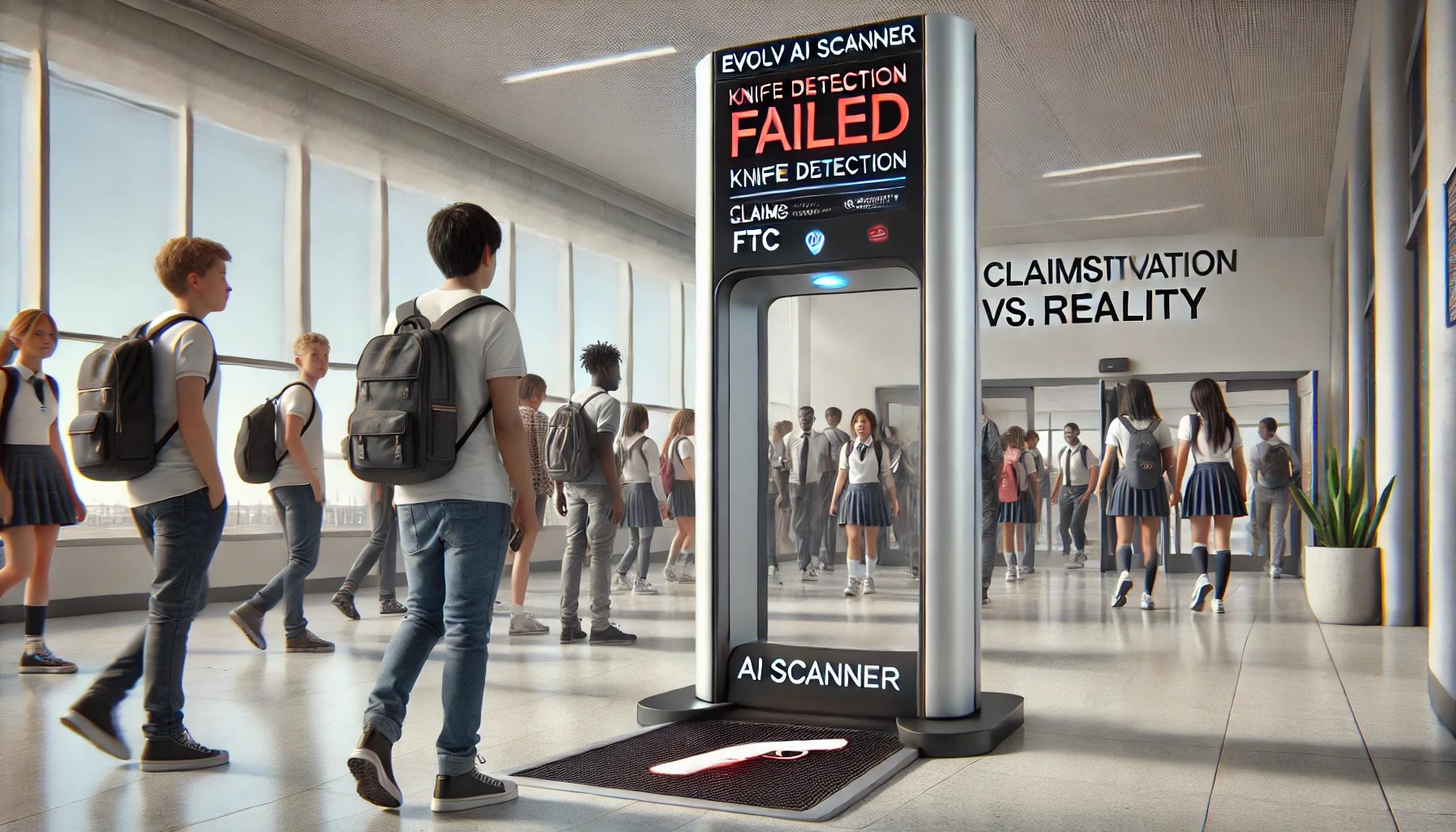AI Weapon Scanners Under Fire: The Evolv Technology Controversy 🛡️🤖

The promise of artificial intelligence (AI) revolutionizing security systems took a hit this week as the Federal Trade Commission (FTC) tackled misleading claims made by Evolv Technology. The company, which markets AI-powered weapons scanners, has been accused of overstating its technology’s capabilities in detecting weapons—a revelation that has implications for the broader AI industry.
📉 The Claims That Didn’t Hold Up
Evolv Technology’s scanners are used at entrances of schools, hospitals, and stadiums across the U.S. The company claimed its AI systems could reliably detect weapons of all types, replacing traditional metal detectors with cutting-edge technology. However, a series of investigations by the BBC revealed major flaws:
- Detection Gaps:
- The scanners reportedly failed to detect weapons like knives and certain types of guns during real-world use.
- A stabbing incident in a New York school, which used Evolv’s technology, underscored this failure.
- Security analysts questioned the system’s reliability after observing similar shortcomings.
- False Testing Claims:
- Evolv asserted that its scanners had been tested and approved by the UK government. Investigations later revealed these claims were unsubstantiated.
- Marketing Missteps:
- The FTC’s complaint focused on Evolv’s marketing, which promised comprehensive weapon detection without sufficient evidence to back those claims.
🚨 The FTC Steps In
The FTC’s settlement with Evolv signals a shift toward stricter regulation of AI claims. The agreement includes:
- A Ban on Unsupported Claims: Evolv cannot advertise unverified capabilities of its products.
- Contract Relief for Schools: Schools using Evolv’s scanners may cancel contracts without penalties.
This action is part of the FTC’s broader initiative, “Operation AI Comply,” aimed at preventing deceptive marketing practices in the AI sector.
🎙️ Official Responses
Evolv acknowledged the settlement but denied any wrongdoing. Mike Ellenbogen, Interim CEO, stated that the FTC’s inquiry pertained to “past marketing language” rather than the core functionality of their technology.
However, the FTC’s Samuel Levine, Director of the Bureau of Consumer Protection, emphasized the broader implications:
“The FTC has been clear that claims about technology – including artificial intelligence – need to be backed up.”
🤔 Broader Implications for AI in Security
The Evolv case highlights growing concerns about AI being oversold. Governments and consumers alike are becoming wary of inflated promises from AI developers, particularly when the stakes involve public safety.
- Trust and Transparency: Companies must substantiate their claims with rigorous testing and transparent methodologies.
- Oversight Needed: Regulators are stepping up efforts to hold companies accountable, signaling a pivotal moment for the AI industry.
🌐 Conclusion
The controversy surrounding Evolv Technology serves as a cautionary tale for both AI companies and consumers. While AI holds immense potential to enhance security, it’s crucial to separate fact from hype. As regulators tighten scrutiny, the industry must prioritize ethics, transparency, and functionality over flashy marketing.
What’s your take on the role of AI in security? Let’s discuss in the comments! 👇
